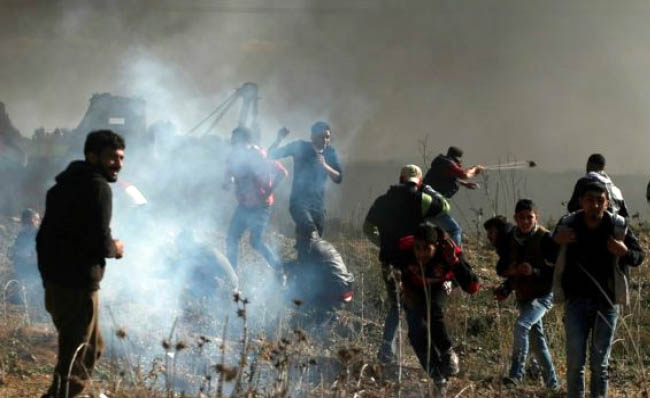Civilians suffer severely as a result of war and militancy. Regional conflicts and terrorist acts have inflicted heavy sufferings and casualties upon them. Both states and terrorist networks are responsible for killing civilians, including women and children. Nowadays, non-combatants are burning amidst war and violence in different parts of the world, particularly in Syria, Iraq, Yemen, Myanmar, and Afghanistan.
Since the start of conflict in Yemen, more than 20 million people, including 11 million children, are in need of urgent humanitarian assistance. Some 17 million people do not know where their next meal is coming from and 7 million are totally dependent on food assistance. Severe acute malnutrition is threatening the lives of almost 400,000 children. At least 14.8 million are without basic healthcare. Only 45 percent of the 3,500 health facilities are fully functioning. They have struggled to cope with the world's largest cholera outbreak, which has resulted in more than 913,000 suspected cases and 2,196 deaths since April 2017. Two million Yemenis are currently internally displaced due to the conflict and 188,000 others have fled to neighboring countries. More than 8,600 people have been killed and 49,000 injured since March 2015. According to the International Committee of the Red Cross (ICRC), 2.5 million people have no access to clean water and one in every 12 is severely malnourished.
Civilians bear the brunt of the violence in Yemen. As well as causing the deaths and injuries of civilians, the conflict has exacerbated an already severe humanitarian crisis resulting from years of poverty and poor governance causing immense human suffering.
In order to deny supplies to the Hauthi forces, the Arab coalition imposed a partial aerial and naval blockade. This is severely limiting the import and provision of fuel and other essentials, obstructing access to food, water, humanitarian assistance and medical supplies and causing food prices to soar, creating a desperate situation for millions of people. Damage to key logistical infrastructure, including bridges, airports and seaports, from air strikes has also severely hampered the movement of crucial humanitarian supplies.
For two years, much of the world has ignored this raging conflict and heard little about its devastating consequences and human rights violation.
A large number of Rohingya Muslims suffer on the grounds of their race and religion in Myanmar. Hundreds of people were killed and thousands of others were forced to flee their country as a result of cruel practices of Myanmar police. Although the reports about the flagrant violation of human rights and civilian casualties in Myanmar went viral, officials in Myanmar claim that they fight militants.
Political upheavals and global war and violence wreaked havoc on countries and inflicted heavy casualties upon nations. Throughout the history, human societies sustained indescribable casualties in the wake of war, which mostly originated from lack of tolerance. There were many reasons behind war. Intolerance and claiming racial and religious superiority were the main reasons behind global wars. However, those bloody and destructive wars were not an eye-opener for the world. Human societies still suffer from violence and bloodshed.
To reduce the sufferings and casualties, human societies have found out the reasons behind violence as well as the solution. It has been said in the preamble of Universal Declaration of Human Rights (UDHR) that “recognition of the inherent dignity and of the equal and inalienable rights of all members of the human family is the foundation of freedom, justice and peace in the world”. It further adds, “Disregard and contempt for human rights have resulted in barbarous acts which have outraged the conscience of mankind”. Hence, underestimating human rights resulted in destructive wars; whereas respecting the natural rights and dignity of mankind is the cornerstone of a civil society.
Despite realizing the grounds for war and solution to it, human societies are still bleeding and human fatalities continue unabated. On the one hand, terrorists spill the blood of men, women, and children, and on the other hand, states are involved in civilian casualties. For example, in the conflicts of Syria, Yemen, and Myanmar, states are highly responsible for killing civilians.
The widespread violation of human rights by the states shows negligence of the international community. The international community will have to put pressure on states not to infringe international instruments through violating human rights. War criminals ought to be brought to justice and the states that do not respect international law, must be sanctioned in some ways. Indeed, if the international community plays the role of a viewer, violence and bloodshed will never come to an end.
In brief, human rights violation, especially human casualties, is highly shocking. Launching a global, military campaign against terrorist networks will reduce militancy to a great extent. Similarly, being united against violators of human rights, be it a state or individual, will be a positive step in terms of advocating human rights and preventing from unnecessary wars.
Home » Opinion » Where is the International Community?
Where is the International Community?
| Hujjatullah Zia

